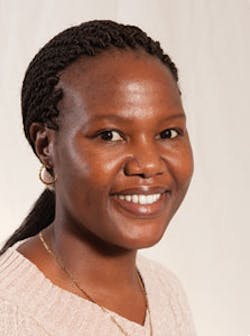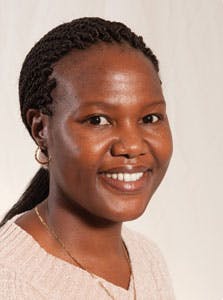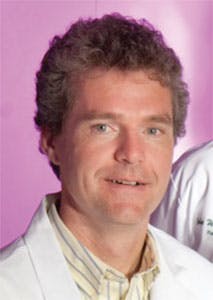BIOMEDICAL IMAGING/LASER SURGERY/MOLECULAR IMAGING: Biophotonics leaders receive appointments, awards
The National Institutes of Health (NIH) has launched a new grant review panel for Biomedical Imaging Technology, and named as its chair for the next two years is Brian Pogue, Dartmouth College (Hanover, NH) Professor of Engineering and Dean of Graduate Studies. "The creation of this panel, which took several years to establish, is important because it shows that biomedical imaging technology has become a large area of research generating a high volume of imaging technology development proposals," says Pogue.
The new panel will review grant applications in optical imaging, ultrasound imaging, X-ray imaging, nuclear medicine, and magnetic resonance imaging (MRI). Panel nominees underwent rigorous review; selection was based in large part on expertise, history of funding, rank, number of recent publications, active grants, history of services, and community support.
The new president of the American Society for Laser Medicine and Surgery (ASLMS) will be George J. Hruza, MD, MBA, clinical professor of dermatology and otolaryngology at St. Louis University (Missouri) and director of the Laser & Dermatologic Surgery Center (also in St. Louis).
Hruza has been a member of ASLMS for 25 years and previously served the organization in other capacities. He says that the organization needs to continue its support of sensible laser regulations and serving as a resource for the FDA as the agency determines what energy-based devices to approve. He says that ASLMS's research program has already funded well over a million dollars ($1,350,000) in original laser research, but adds, "I plan to set our sights a lot higher through the development of a self-sustaining endowment fund."
Among the distinguished group upon whom South African President Jacob Zuma conferred national orders on Freedom Day (April 27) 2012 was the country's only biophotonics scientist, Patience Mthunzi, Ph.D. Dr. Mthunzi was recognized for her contributions to the fields of biochemistry and biophotonics.
Mthunzi is a senior scientist in the biophotonics research group within the CSIR National Laser Centre. She earned her Ph.D. in photonics (biophotonics) from the University of St. Andrews in Scotland; her research interests are optical trapping/tweezing, single-cell and -molecule research, and stem cell, HIV, and drug delivery research. National orders are the highest awards South Africa bestows. Other honorees were recognized for their work to save lives and transform systems.
The National Science Foundation (NSF) has presented to Xavier Intes, assistant professor of Biomedical Engineering at Rensselaer Polytechnic Institute (Troy, NY), a Faculty Early Career Development Award (CAREER). Intes will use his five-year, $400,000 award to pursue "Whole-Body FRET Tomography," a project that will advance Förster resonance energy transfer (FRET) as a robust, 3D imaging platform for in-vivo profiling of tumors and a basis for individualized therapy. FRET is a noninvasive technique that enables researchers to observe protein interactions at the nanoscale, but it is currently limited to work with cell cultures and Petri dish environments. Intes will adapt FRET to observe protein interactions in live animals.
Finally, the Delaware BioScience Association presented its Academic Research Award award to Noureddine Melikechi, D.Phil.—who serves as Dean of the College of Mathematics, Natural Sciences, and Technology at Delaware State University—on April 16 during the association's 2012 Annual Awards Gala. The group cited Melikechi's work in applied optics and laser spectroscopy; his primary research interests are optical spectroscopy of complex samples, and biophotonics. Dr. Melikechi received his award from Brian Pryor, president of laser therapy systems developer LiteCure LLC.
More BioOptics World Current Issue Articles
More BioOptics World Archives Issue Articles


